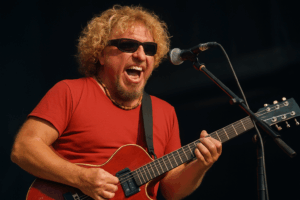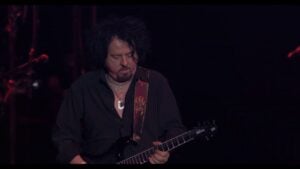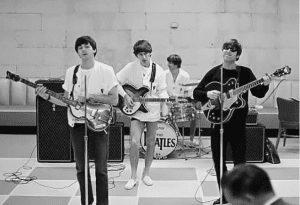Country Musicians Who Actually Lived The Outlaw Life

via @JohnnyCashVEVO / YouTube
Country music has long embraced its rough edges—songs full of heartache, hard living, and rebellion. But while many artists adopted the image of the outlaw as part of a musical persona, not everyone who wore the label had the backstory to match. The genre’s Outlaw movement, which rose to prominence in the 1970s, was as much about artistic independence as it was about a devil-may-care attitude. Still, for some, the outlaw life wasn’t just a vibe—it was a very real, and often dangerous, way of living.
The rise of Outlaw Country gave fans a new breed of singer: one who bucked tradition, shunned polish, and chose personal truth over radio-friendly conformity. While figures like Waylon Jennings and Willie Nelson helped define the movement, they weren’t necessarily living outside the law—at least not in the way the word “outlaw” implies. Behind the scenes, the term ruffled feathers among artists who had actually done hard time and weren’t particularly keen to see their criminal pasts romanticized or packaged as marketing.
Yet there are country musicians who didn’t need to borrow trouble or build a persona. For them, the outlaw life wasn’t a record sleeve aesthetic—it was court dates, prison walls, and second chances. In this article, we spotlight three country artists whose brushes with the law weren’t just tabloid fodder or youthful mistakes, but defining chapters in lives that truly earned the label.
Merle Haggard
Of all the artists to walk the line between outlaw and icon, Merle Haggard might be the most remarkable. His transformation from juvenile delinquent to country legend is the kind of story that seems tailor-made for myth-making—but in Haggard’s case, every detail rings true. A frequent runaway and habitual troublemaker as a teen, Haggard’s early years were marked by reform schools and close calls, not sold-out shows and awards.
In a 1995 interview, Haggard described himself as a “screw-up,” recalling no less than 17 escape attempts from California correctional institutions. His early talent was undeniable, catching the ear of country great Lefty Frizzell at a young age, but even brushes with stardom weren’t enough to keep him off the wrong path. A failed robbery in Bakersfield landed him in San Quentin, one of the most notorious prisons in America.
It was behind those walls that everything changed. Witnessing Johnny Cash’s famous performance at San Quentin inspired Haggard to rethink his life. After serving his time, he dove headfirst into music and never looked back. With hits like “Mama Tried” and “Sing Me Back Home,” Haggard didn’t just sing about redemption—he lived it. His outlaw image wasn’t a costume; it was a story of survival.
Johnny Paycheck
Johnny Paycheck had the kind of talent most musicians would kill for—but it came with a heavy cost. Known for his raw vocals and emotional delivery, Paycheck also had a self-destructive streak that threatened to derail his career at every turn. His life was marked by high highs, low lows, and more than a few run-ins with the law that were more serious than the typical rowdy behavior associated with country stars.
Born Donald Lytle, Paycheck was a working musician by the time he was 15 and had already served time in military prison before most kids his age graduated from high school. His Navy stint ended in disgrace after he assaulted an officer, leading to two years behind bars. But Nashville offered a new start, and Paycheck found his footing backing George Jones before striking out on his own.
Paycheck scored major hits and became known as both a powerful performer and a notorious partyer. But trouble followed him into the spotlight. In 1985, he was convicted for shooting a man in a barroom dispute and spent nearly two years in an Ohio prison. He eventually received a pardon from the governor and returned to music with a calmer presence, though financial woes and legal problems never fully disappeared. Still, Paycheck remains a striking example of a country outlaw whose wild ways weren’t just for show.
David Allan Coe
David Allan Coe didn’t just flirt with the outlaw label—he embodied it. With a checkered youth that included time in reform schools and prisons, Coe’s early life was as unpolished as his later music. His stories of incarceration weren’t just lyrical flourishes—they were lived experiences, and they shaped both his songwriting and his attitude toward the country music establishment.
While serving time, Coe met fellow inmates who encouraged him to pursue music, including the larger-than-life Screamin’ Jay Hawkins. His first album, Penitentiary Blues, leaned more into the blues than country, full of gritty, firsthand stories about life behind bars. Though it failed to break through initially, Coe’s voice and defiant energy caught the attention of the Outlaw Country scene soon after.
His rebranding as a country artist took full flight with The Mysterious Rhinestone Cowboy, an album that mixed humor, rebellion, and razor-sharp commentary. Known for songs like “You Never Even Called Me by My Name” and “Longhaired Redneck,” Coe both mocked and honored Nashville’s traditions. He also took his outlaw persona seriously, even joining the Outlaws Motorcycle Club. In a genre full of rebels, David Allan Coe stood out as someone who didn’t just sing the part—he lived it.














